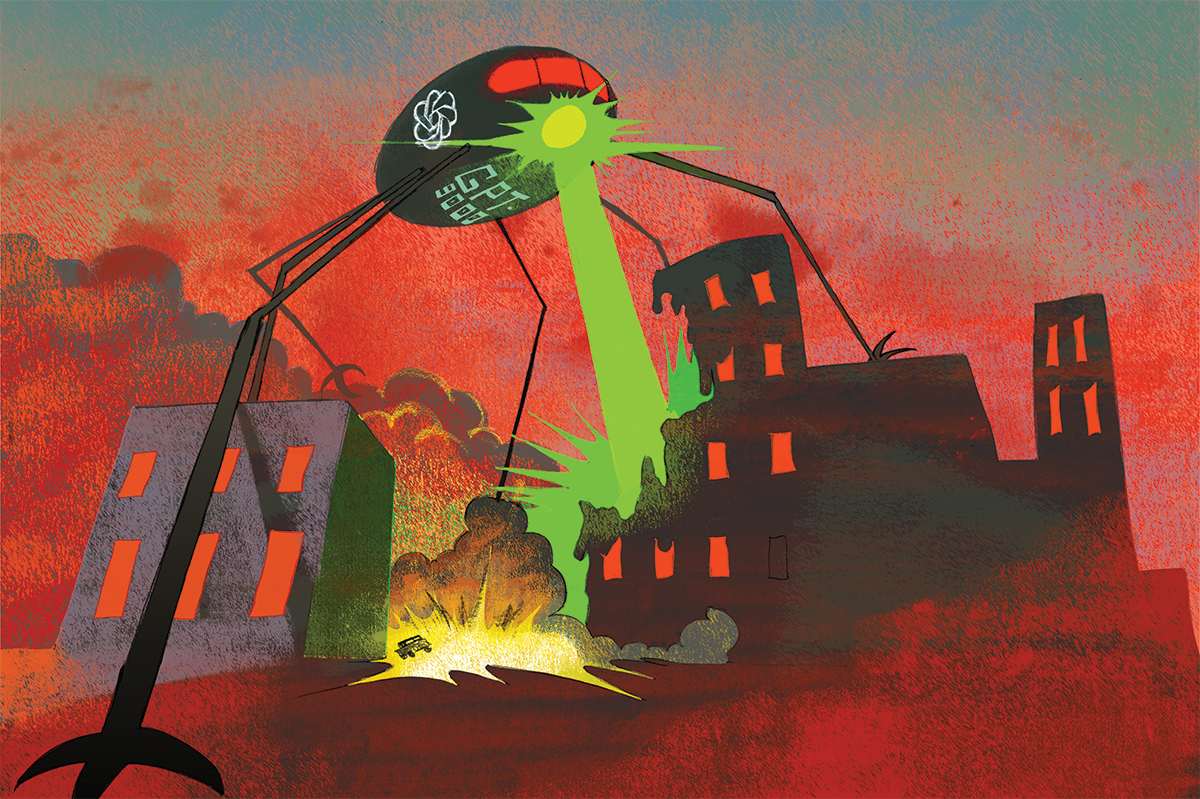Two recent pieces — one on the contemporary American essay and one on Sean Thor Conroe’s novel Fuccboi — argue that contemporary writing has become too egotistical. Rather than focusing on the story, writers constantly turn toward themselves.
In the Drift, Jackson Arn writes in a review of Phillip Lopate’s The Contemporary American Essay, that he is sick of the constant questioning one finds in many contemporary American essays that also seem to lack any real interest in answers. Take Rivka Galchen’s essay “The Case of the Angry Daughter,” for example:
There are lots of maybes and maybe nots in this essay, even by TCAE’s impressive standards, and I suspect that they’re not inspired by the subject so much as demanded by the form — that, as with Skloot’s tour of insultare, they’re carefully, artfully tangled, present not because they reflect a parent’s anxiety so much as because they reflect an essayist’s artful, studied confusion. Detective fiction usually ends with the revelation of some important truth, of course, but no important truths make themselves known to Galchen as her essay reaches its end. No matter: “The not-knowing part,” she asserts, “is more essential than the knowing.” In lieu of knowledge, rhetorical questions are prettily arranged around non-answers — e.g., “Why does a Halloween pumpkin matter so much? What overwhelming story or fear or feeling has been Trojan-horsed inside? I don’t know.” I can imagine essayists from earlier generations writing something like this about their children. I’m not sure I can imagine any of them giving “I don’t know” its own paragraph.
What we get in the contemporary American essay is not an appreciation for ambiguity but a performative ambiguity, which is just a kind ambivalence, and which functions as a kind of cover:
Ambivalence at its best is good for lots of things — conveying the moral and epistemological complexity inherent to the human condition, say — but even at its worst it’s a great way of dodging criticism. In the MFA programs where ever-growing numbers of young writers gather to fast-track their careers, dodging criticism is the name of the game (a game for which it’s not uncommon to shell out $100,000, once you factor in room and board). When the writer’s thoughts and feelings have been tastefully hedged, they become much harder to find fault with — particularly when the writer’s subject is the self, about which some iffiness is to be expected. Still it grates, the way so many of the highly intelligent, highly educated, highly observant essayists in TCAE glance at the external world’s ills, shrug, and resume fingering the knot of first-personhood.
But it’s “fingering the knot of first-personhood” that he finds particularly grating. He writes: “The idea that you could write an essay about detective fiction or brain damage simply because these are interesting topics comes to seem almost nonsensical. The idea that you could write about cancer without once mentioning that you have cancer, as Susan Sontag did in the New York Review of Books in 1978, comes to seem positively inhuman. Personal experience with the subject at hand, TCAE implies dozens of times over, must be announced wherever possible, and if it’s not possible, you’re probably better off writing about something else.”
In her review of Fuccboi for UnHerd, Esther Manov sees the same tendency:
The current crop of young writers is less ambitious and less accomplished even than the minimalists and dirty realists — Bret Easton Ellis, Raymond Carver, Denis Johnson, Amy Hempel — they are (likely unknowingly) imitating. In that earlier generation’s writing, the chaotic hedonism of the everyday attains emotional depth and significance; characters are complex and differentiated, and struggling to form complex and differentiated relationships with each other. They have more than names, characteristics, and the occasional impulse; they have feelings, thoughts, and sometimes, even, ideas.
But where there once was narrative that made life seem complicated, moving, and significant, indie literature today primarily comprises trite, essentially ecological descriptions of an already familiar scene, devoid of any coherence or meaning… these writers, and the thinly disguised stand-ins that populate their autofiction… are merely permanent adolescents, incapable of empathizing with any experience outside of their own and comfortably withdrawn into a profound egotism.
Ouch.
In other news
In praise of the Captain magazine:
The Captain contained many kinds of feature for boys including articles on technology (cameras and engines in the early days, crystal sets towards the end) and worthy articles on potential careers. There was also a lot of sports coverage confined entirely to amateur and elite sport: the magazine claimed to have introduced the idea of the “athletic editor”, its first being C.B. Fry and its last Harold Abrahams. But a great deal of the magazine comprised of novel-length serialized stories in the classic Victorian fashion. Many of these were adventure stories almost invariably set on the frontiers of Empire or the Wild West. But the absolute stalwart, amounting to half the total, was the school story: “boys” and “old boys” meant public schoolboys.
Sting sells his music catalog to Universal for $300 million.
A Forbes.com contributor has been arrested for allegedly attempting to launder $4.5 billion in stolen cryptocurrency. She also worked as a rapper and apparently wrote about herself for the website. Is this the end of the Forbes’s “contributor” model?
Matthew Walther writes about marriage — his: “I remember nearly every detail of that first and, strictly speaking anyway, only date, but three things stand out: that it was cold enough that I offered her my sweater and she took it, that near the halfway mark I took her hand in mine and did not surrender it until our parting, and that she gave me a piece of unsolicited advice: ‘The world wasn’t made for you. You will never be able to change all the things that are horrible. You won’t even be able to do anything important in the world, not in the way you think when you read about Nelson or the Duke of Marlborough. The only thing for someone like you is family life.’”
What’s wrong with American education? Robert Pondiscio argues in Commentary it is the fetishization of crisis:
Children are told, sometimes explicitly in school and in the broader culture, that the world is counting on them for deliverance from problems grown-ups heedlessly created and have proven incapable of solving. In 2019, TIME magazine named sixteen-year-old climate activist Greta Thunberg the youngest “person of the year” in its history. A group of Parkland, Florida, high-school gun-control activists topped the magazine’s list of the world’s most influential people. The article praising their efforts was written by Barack Obama. Worst of all, this pedagogy of the depressed — America the Problematic — is thought to be a virtue among professional educators who view it as a mark of seriousness and sophistication. We want children to grapple with “honest history” starting in elementary school and to discover the power of their voices by writing authentic essays about their personal problems. Small wonder, then, that children are more depressed and medicated than ever before. A half-century of psychological research indicates that our beliefs about the world shape behavior and our sense of well-being. Whether one views the world as good or bad, safe or dangerous, enticing or dull, is correlated with outcomes such as life satisfaction or depression. We may think that we are doing children a good service by being “real” with them, refusing to spare them from the unpleasant facts of the tired world they will soon inherit, thus inspiring them to seize the day and set the world right. But strong evidence is emerging that we are mostly succeeding in creating a generation of overwhelmed young people paralyzed into learned helplessness.
The BBC reports that the UK-based JET lab has made a major breakthrough in nuclear fusion.
Earl M. Maltz reviews three new books on the Fourteenth Amendment: “Many Americans are accustomed to thinking of the Constitution as a single, undifferentiated charter of government. In fact, however, the document consists of a variety of separate pieces that were adopted at different times in a variety of contexts.”

























